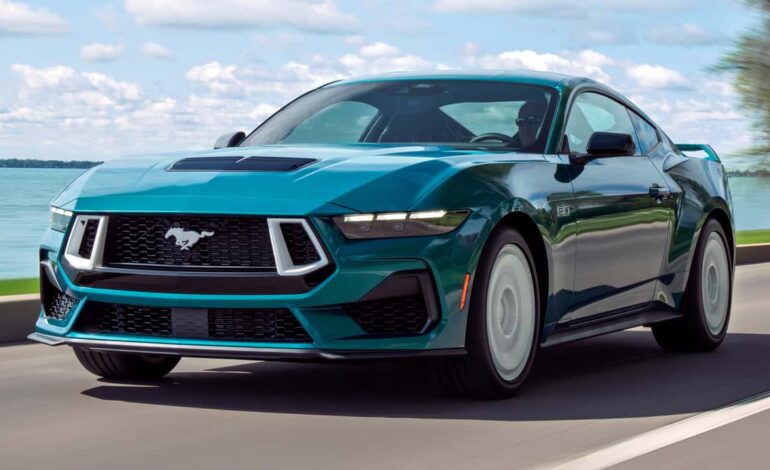Ford Invests in Mustang Despite Declining U.S. Sales

Ford Motor Company is doubling down on its iconic Mustang brand despite a notable decline in sales within the United States. In the first half of 2025, Ford sold only 23,551 Mustangs in the U.S., marking a 14.2 percent decrease compared to the same period in 2024. CEO Jim Farley revealed in a recent podcast with The Verge that the Mustang is experiencing greater popularity outside the U.S., prompting the company to maintain and invest in the model’s future.
Farley expressed confidence in the Mustang’s global appeal, stating that “everyone wants to do a burnout,” indicating that the vehicle continues to resonate with buyers seeking a taste of classic American muscle. This sentiment reflects Ford’s commitment to keeping the Mustang relevant in a rapidly changing automotive landscape.
Global Demand and Future Investments
While the Mustang struggles in its home market, international demand is reportedly strong. Farley emphasized that this global interest gives Ford the confidence to continue investing in the Mustang brand. In the same interview, he dismissed concerns that the Mustang’s locked engine control unit (ECU) has negatively impacted sales. However, he acknowledged a personal connection, noting that his son chose an older Mustang over the latest S650 model due to its tunability limitations.
The ECU’s recent hacking by HP Tuners could potentially invigorate the aftermarket scene, allowing enthusiasts to enhance their vehicles’ performance. Farley’s mention of future investments raises questions about Ford’s strategy moving forward. Speculations suggest that alongside the current Mustang, Ford may be exploring new models, including the anticipated Mach 4 sedan and an off-road variant inspired by the Baja racing style.
Expanding the Mustang Lineup
Reports from Automotive News indicate that some dealers were shown a rendering of a sleek four-door coupe, hinting at a potential expansion of the Mustang lineup. Alongside the rumored models, there is also talk of an EcoBoost variant, which debuted at the 2025 Detroit Auto Show in January. These developments suggest that Ford may be broadening the Mustang brand beyond traditional expectations.
As the automotive industry faces increasing emissions regulations, particularly in Europe, the introduction of a hybrid powertrain for the Mustang is a possibility. Although this idea might be contentious among purists, it aligns with the industry’s shift towards more sustainable options. Nevertheless, Farley has assured enthusiasts that the gas-powered Mustang will remain available well into the 2030s.
The ongoing discussions about expanding the Mustang brand illustrate Ford’s strategy of leveraging its established name to introduce new models. While traditionalists may resist these changes, the potential for growth and adaptation in a dynamic market could ultimately benefit both the brand and its loyal customer base.
As Ford navigates this transitional phase, it remains clear that the Mustang will continue to hold a significant place in the company’s portfolio, adapting to meet both consumer demand and regulatory challenges.






